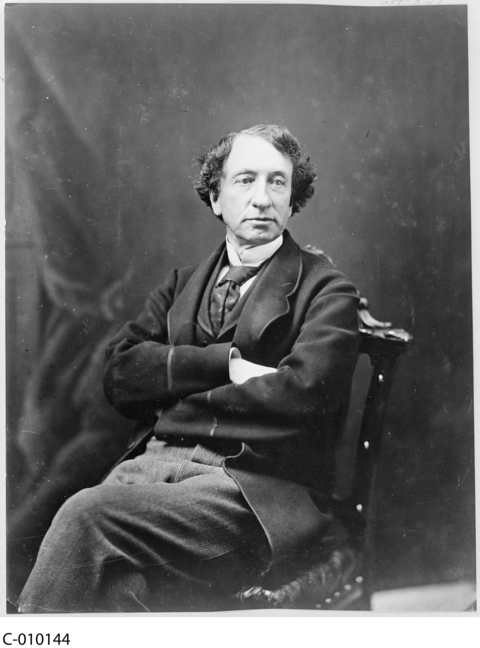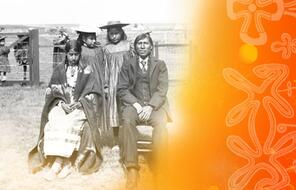Aggressive Assimilation
Facing the resilience of indigenous traditional education in Canada, Prime Minister Sir John A. Macdonald, who was also Minister of Indian Affairs, commissioned Nicholas Flood Davin, a journalist, lawyer, and politician, to go to Washington, DC, in 1879 to study how the United States tackled the same issue. At the time, the US had developed a policy of aggressive civilization of Native Americans. This policy, writes anthropologist Derek G. Smith, “had been formulated in the post-Civil War period by President Ulysses S. Grant’s administration . . . and was passed into law by Congress in early 1869.” 1 The key to this policy was a system of industrial schools where religious instruction and skills training would help the Native Americans catch up with the demands of Western society.
- 1Derek G. Smith, “The ‘Policy of Aggressive Civilization’ and Projects of Governance in Roman Catholic Industrial Schools for Native Peoples in Canada, 1870–95,” Anthropologica 43 (2001), 254.

Prime Minister Sir John A. Macdonald led the forced removal of Indigenous Peoples from their land and onto reserves in the mid-nineteenth century. For Macdonald, the goal was not just to remove individuals but to assimilate them into mainstream Canadian culture.
In a confidential report to the Canadian government submitted in 1879, Davin advised Canada to follow this model of boarding schools (industrial and residential schools were essentially the same). His report became the “founding document, in effect the charter document, which specified the terms within which industrial schools functioned for almost a century.” 1 Davin outlined plans for the creation of 13 new boarding schools, making sure his proposal would not prove too costly to the government.
- 1Derek G. Smith, “The ‘Policy of Aggressive Civilization,’” 254. The report was titled Report on Industrial Schools for Indians and Half-Breeds (1879).












